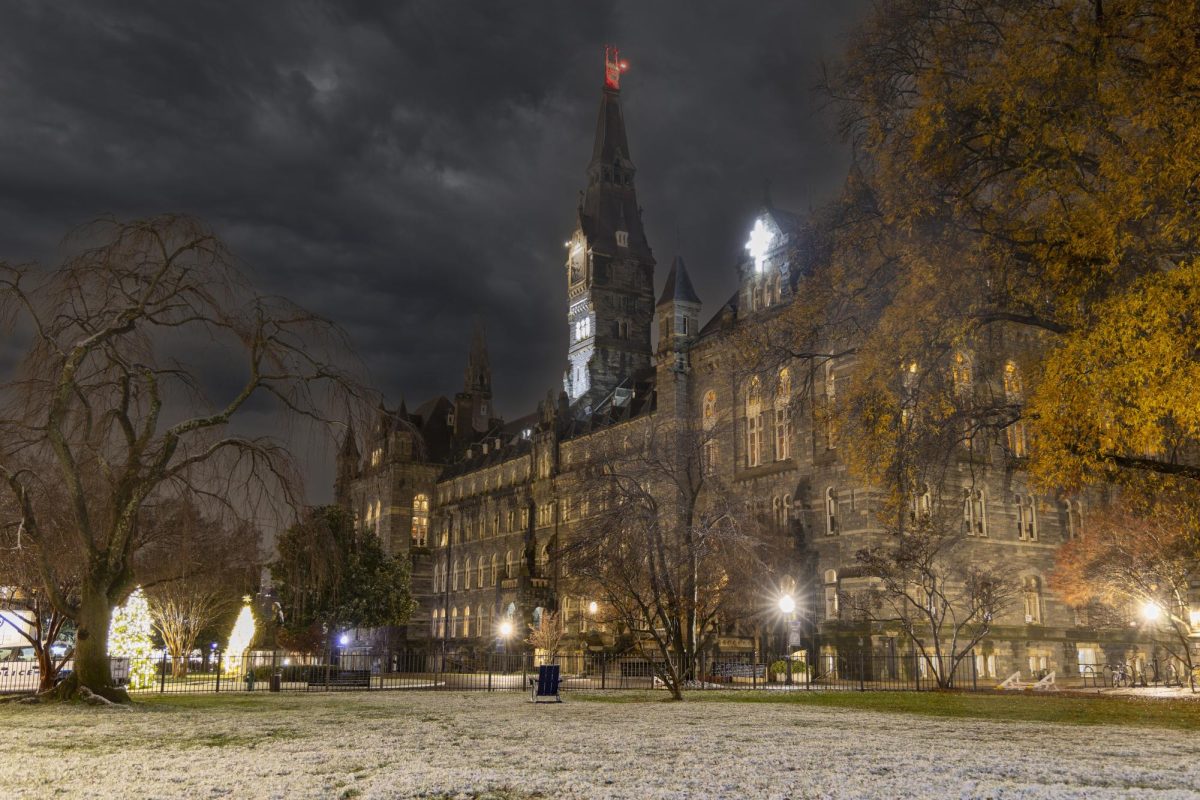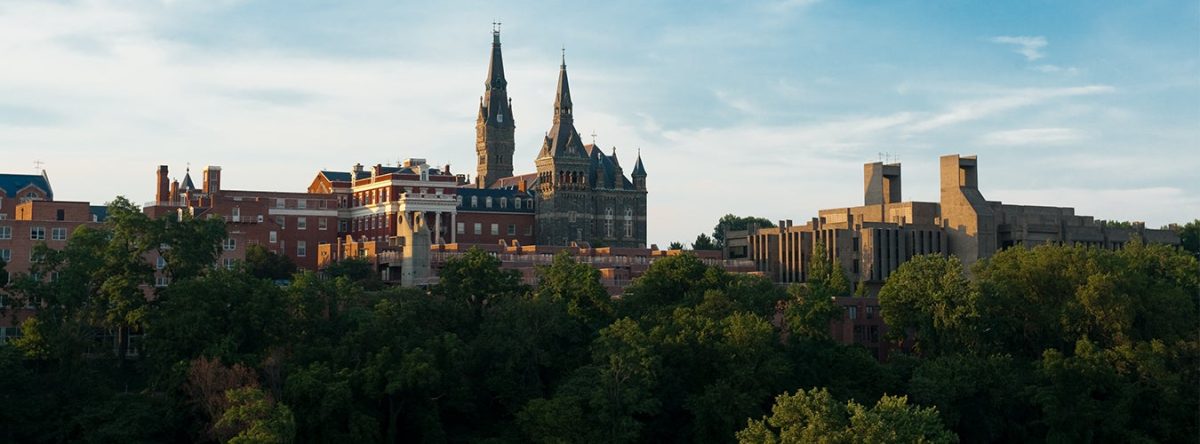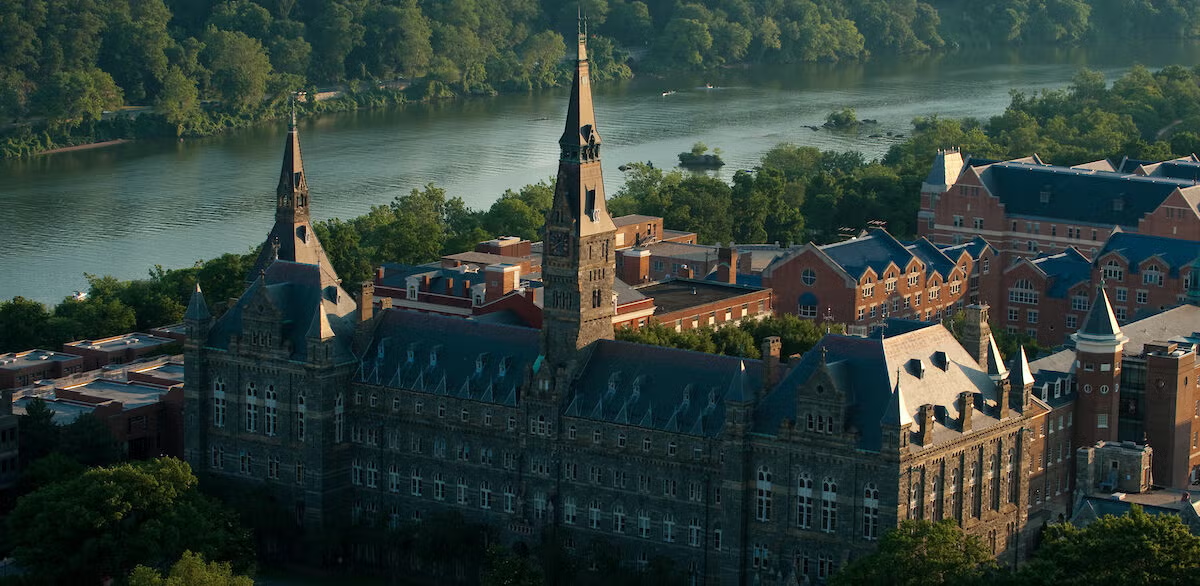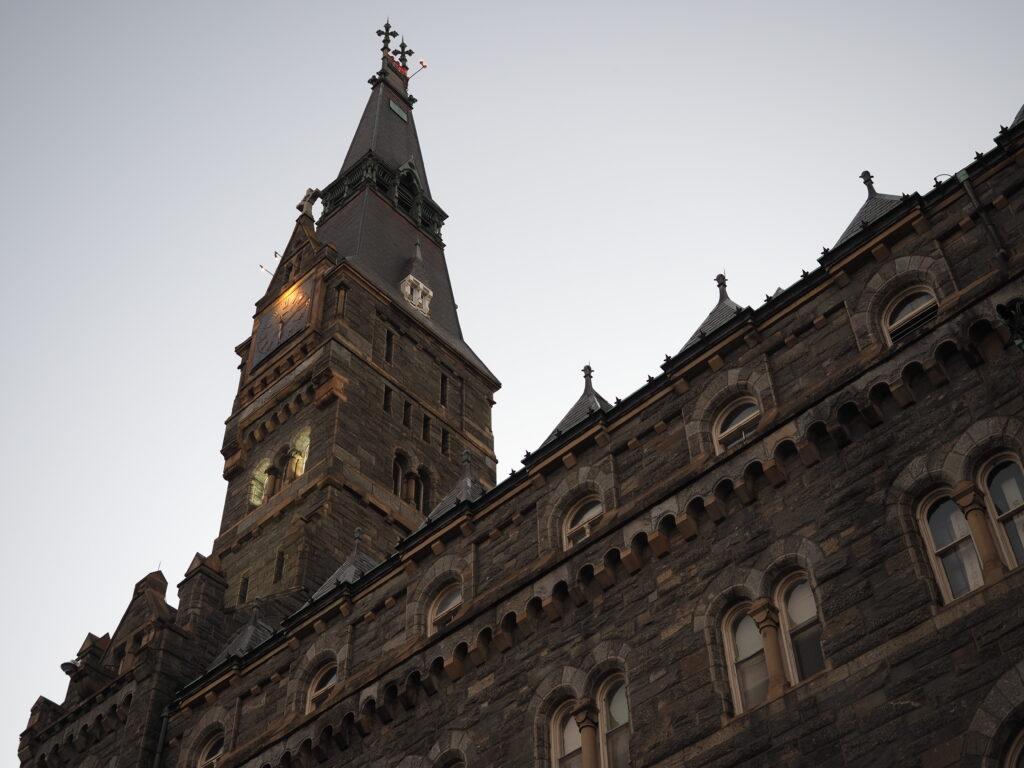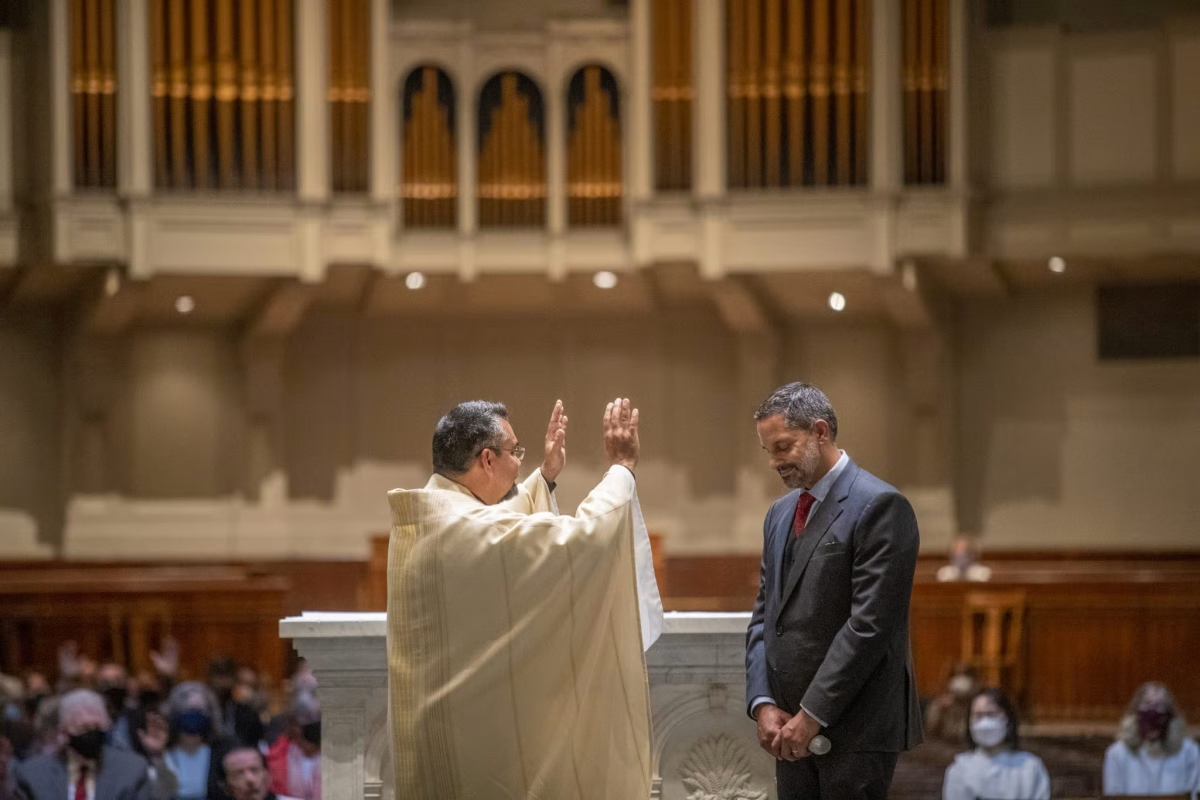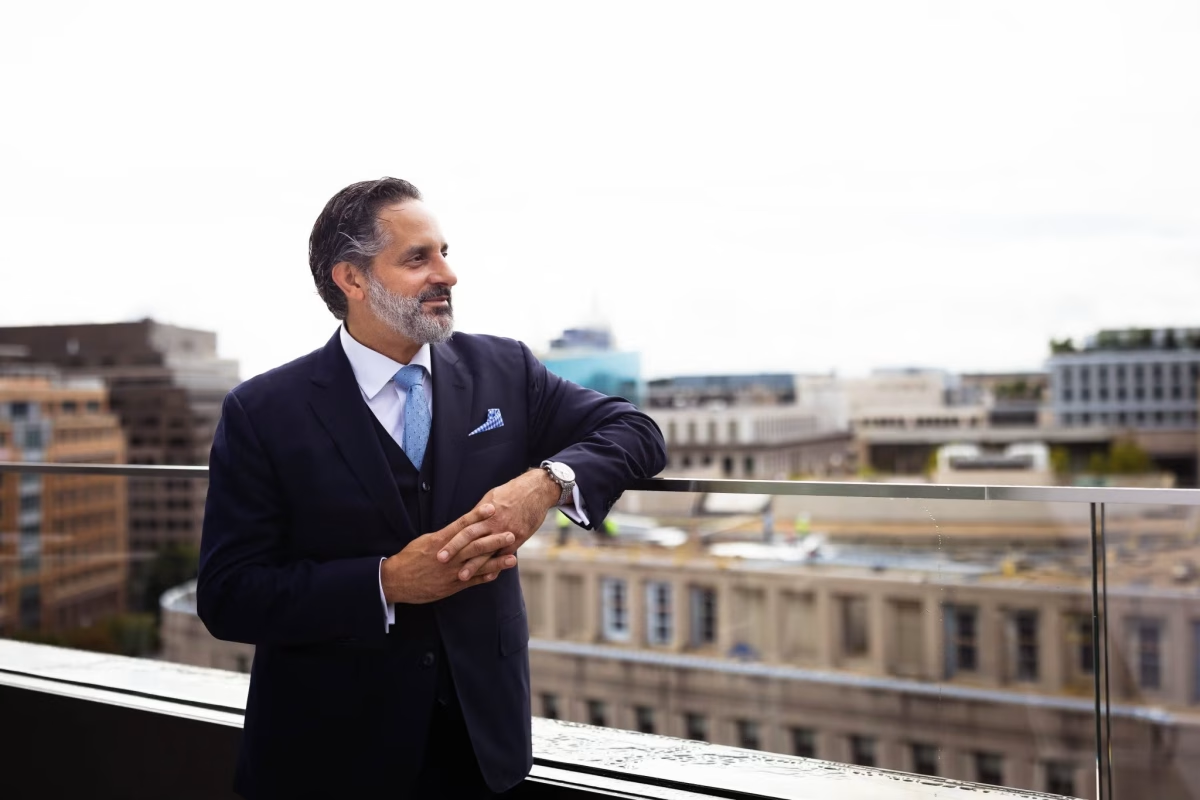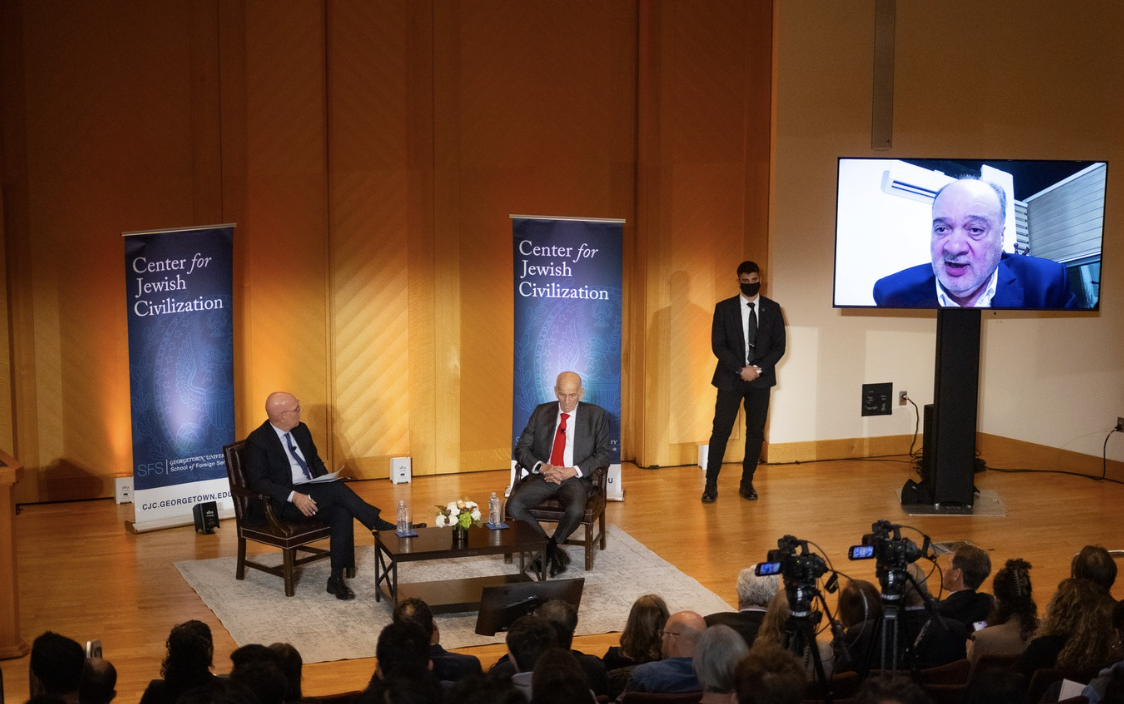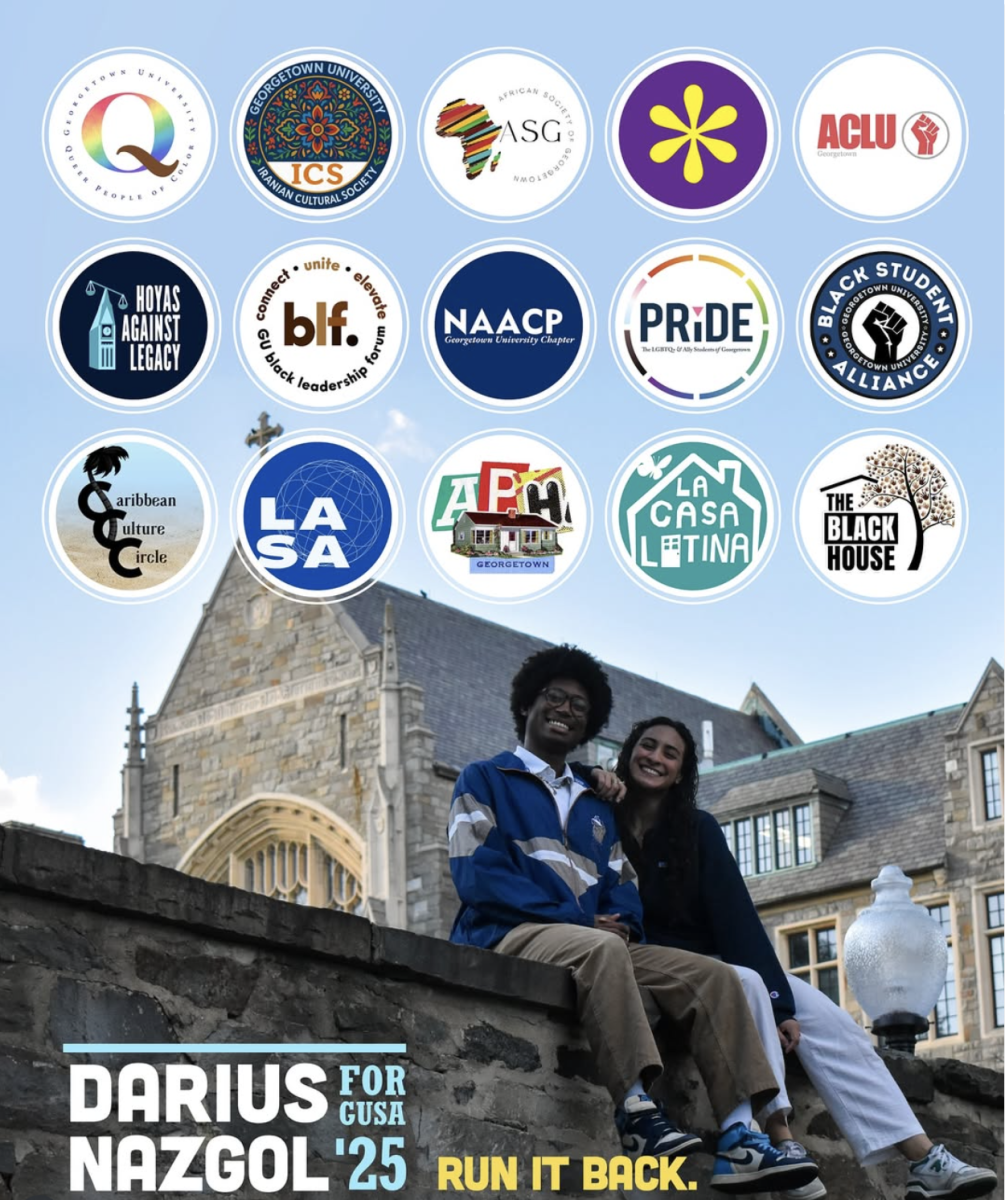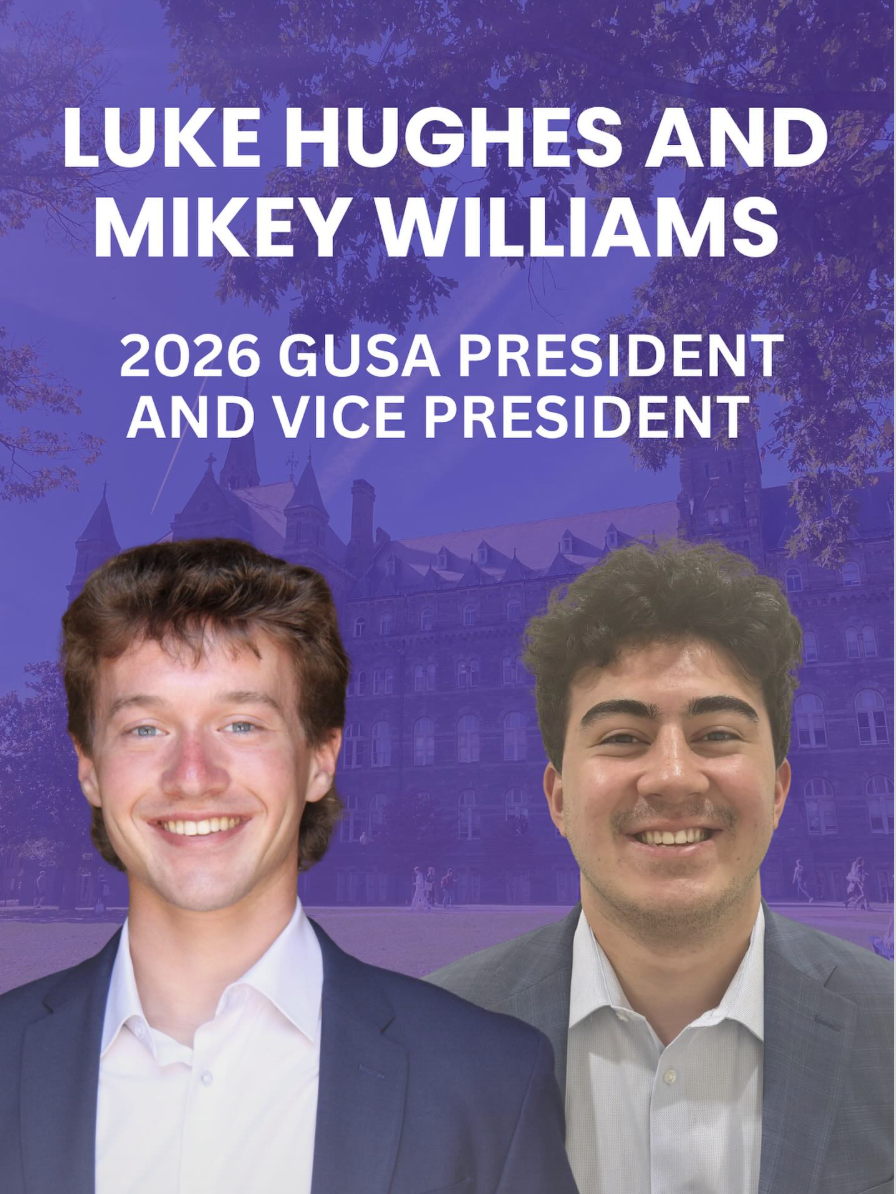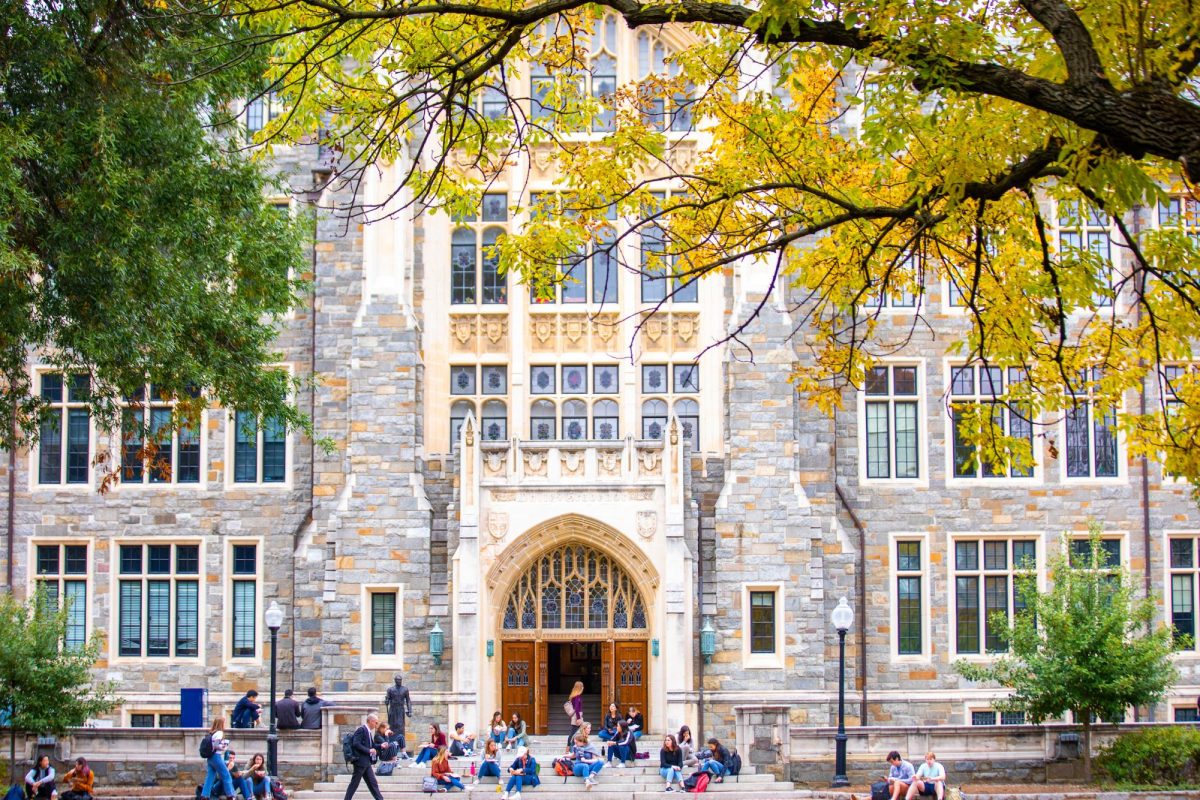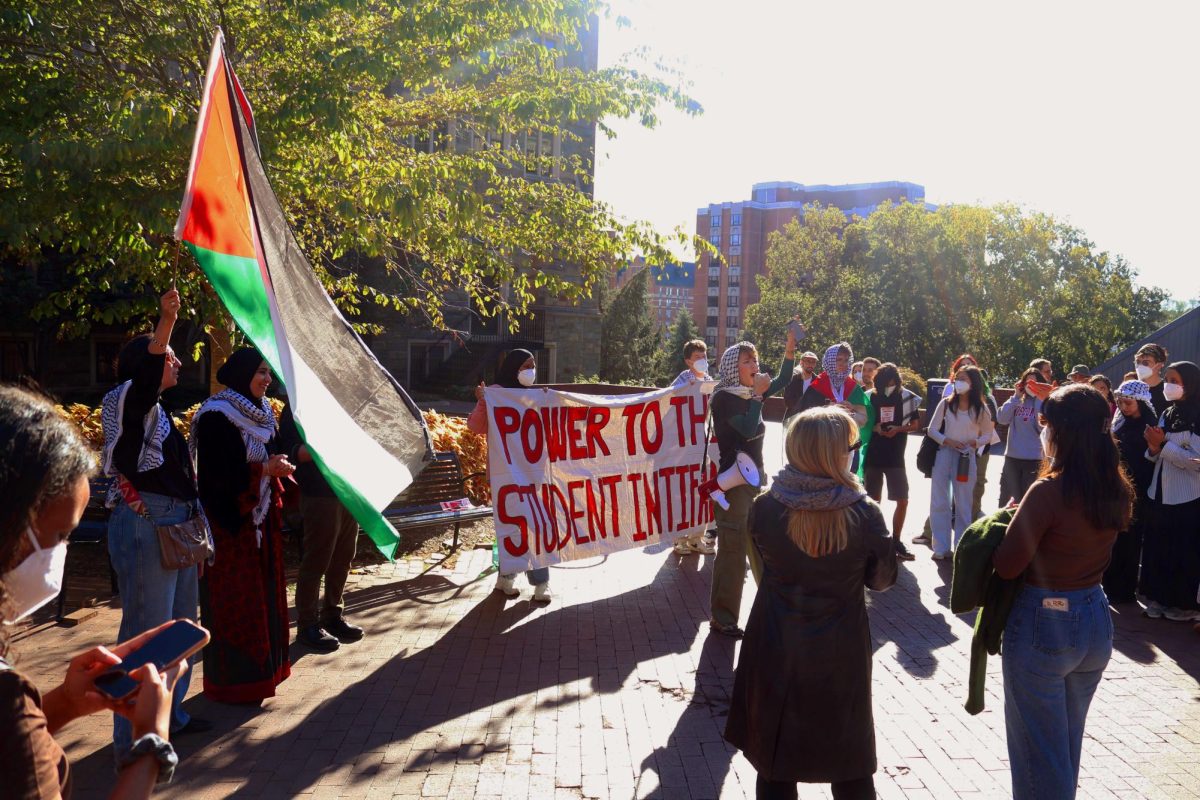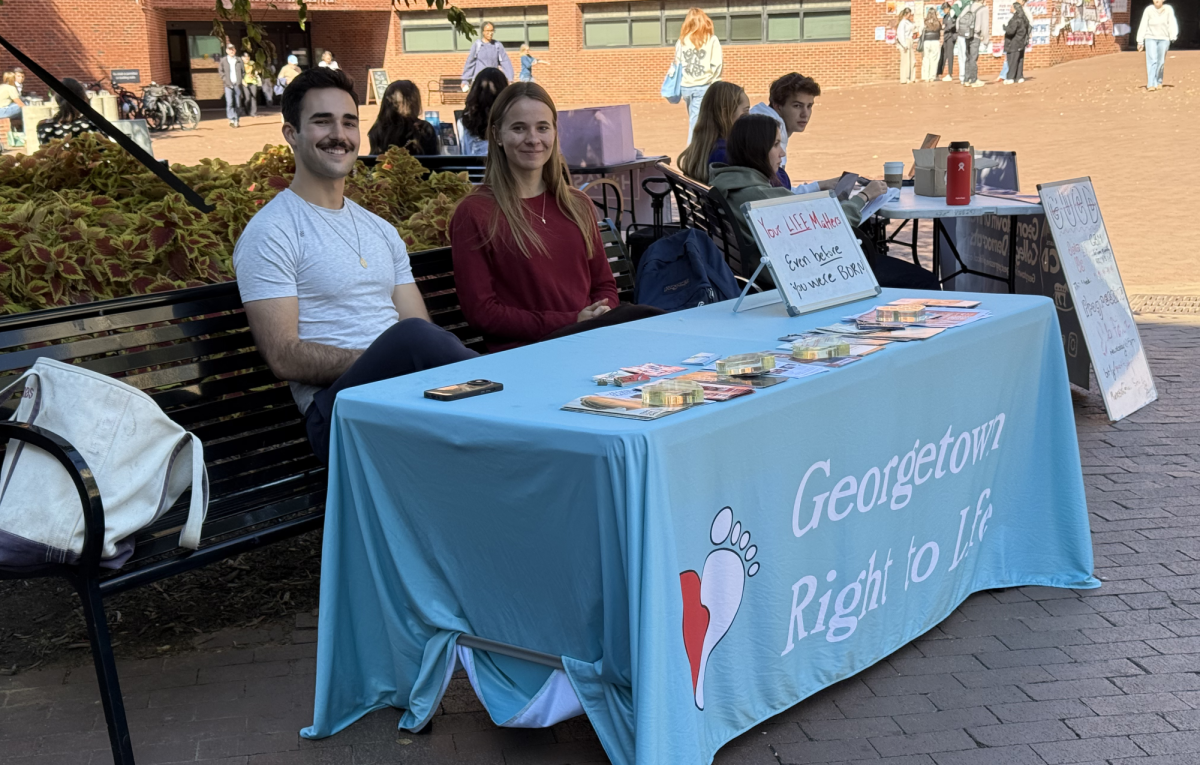A Georgetown University advisory committee voted Oct. 23 to advise the office of the President against enacting a plan that would effectively remove some Georgetown University Transportation Shuttle (GUTS) drivers’ university benefits, following weeks of student and worker advocacy.
The Advisory Committee on Business Practices (ACBP) — composed of 12 students, faculty and administrators — consults the president on the ethics of labor and business policies at the university. ACBP primarily focuses on implementing the Just Employment Policy, which directs the university to provide livable wages and benefits to employees and to avoid job loss.

The plan under consideration, first presented to drivers in September, would subcontract GUTS drivers with the private company Abe’s Transportation. This plan changes GUTS drivers’ employment from being direct university employees to subcontractors, meaning they lose access to most university benefits, including the university’s health insurance and retirement packages.
The resolution, approved unanimously by the ACBP, advises chief operating officer (COO) David Green to keep the GUTS drivers employed by the university “by any means necessary.”
“We understand that it is the conversion to and upkeep of a new fleet of buses — not the cost of driver wages — which represents a significant economic burden to the University,” the resolution reads.
“We also understand that the drivers currently employed by Georgetown to drive GUTS buses, who are among its most loyal and beloved employees, strongly object to having their direct employment with the university severed and believe that doing so will compromise the level of commitment that subcontracted drivers feel to serving the Georgetown community,” it reads.
Around 20 GUTS drivers and students with the Georgetown Coalition for Workers Rights (GCWR), a student group advocating for labor rights on campus, gathered outside of the Murray Conference Room in Lauinger Library, where the ACBP was meeting to consider the resolution. As committee members entered the room, students held signs encouraging them to “protect GUTS,” though the students remained outside throughout the meeting.
While the ACBP deliberated, GUTS drivers and students expressed frustration with the university’s plan and response to community pushback.
Roy Linton, a GUTS driver of 14 years, said he was disappointed by the university’s lack of transparency while developing their proposal to subcontract drivers.
“They’re not being honest,” Linton told The Hoya. “They knew that they were going to do this way before now, and they wait till last minute to inform us.”
Linton added that although GUTS drivers have given feedback about the financial impacts of the plan, he feels the university is not listening to their concerns.
“They just want to get rid of the department and see what they can save by not giving us benefits or retirement pension pay for medical,” Linton said. “They’re just trying to cut costs.”
In an email response to a Sept. 19 petition circulated by GCWR opposing the plan, Green said the university would move ahead with the plan, citing university financial constraints and a Washington, D.C. law requiring private bus fleets to convert to 50% low-or-zero-emission buses by 2030 and 100% by 2045. A university spokesperson previously said not moving to a third-party vendor and remaining in compliance with the law would cost the university $60 million.
Green said the university was committed to upholding its commitment to the drivers even under the new plan.
“In our engagement to date, we are working to take into account the feedback we have received,” Green wrote in the email to GCWR.
“We are now working to ensure that affected employees are treated fairly and respectfully as we manage this transition,” Green added. “Georgetown is committed to ensuring that any current employees impacted by this transition receive employment with comparable compensation and benefits, unless they accept another position with the University.”
Noel Tiongson, another GUTS driver, said he felt blindsided and undervalued when administrators presented the plan to drivers Sept. 3, without first gathering their input.
“Mr. Green not even bothering to alert us that he’s going to do this doesn’t give us any confidence that he really has thought about this well enough,” Tiongson told The Hoya. “We are not just drivers for most people that never have anything to do with Georgetown; we are Georgetown University.”
If the plan is implemented, GUTS drivers would either move to an Abe’s Transportation subcontract or shift to a different university position, many of which pay less.
Alvaro Barberena, who has driven with GUTS for 18 years, said the wages of the alternative occupations at the university are not comparable to their current salaries.
“They’re giving us the option of going to housekeeping, from driving to housekeeping, Barberena told The Hoya. “That is a different pay, probably half of what we’re getting paid now. So we’re not keeping the same pay. They’re going to give us whatever they get paid.”
Linton said he feels betrayed.
“I feel so disappointed. Every morning we get up, you used to look forward to going to work,” Linton said. “Now, I don’t have that feeling no more. I feel betrayed. That’s how I feel. It’s really depressing, as I was hoping to retire here.”
Michael Fleming, who has worked as a GUTS driver for seven years, said he feels GUTS is being treated as a business, though he sees the Georgetown community as a family.
“GUTS has been a part of Georgetown for 50 years,” Fleming told The Hoya. “So when all of a sudden it becomes a business and that you have to run it, that’s what makes me feel they don’t know what Georgetown is; they don’t know what Georgetown is about; they don’t know what Georgetown stands for.”
After the committee released its recommendation, students and workers felt cautiously optimistic.
Elinor Clark (CAS ’27), the GCWR facilities team lead who was outside the meeting, said the decision has given her hope after weeks of advocacy that included concerts, rallies and petitions.
“To be completely honest, I was starting to lose faith in our advocacy efforts,” Clark told The Hoya. “The Georgetown administration’s responses to our petition and actions have been very disheartening. But this meeting has given me a sense of hope again.”
Clint Corkran (SFS ’28), one of two undergraduate student representatives on the ACBP who has an equal voting and deliberation role to all other members, said he was happily surprised by the outcome.
“I was uncertain what we would get out of the meeting, but I was very impressed with and proud of the ability to cooperate within the meeting, and the fact that essentially all nine voting members of the board had the same position that these Georgetown bus drivers are crucial members of the community,” Corkran told The Hoya.
Corkran added that the decision meant the community’s advocacy efforts were working.
“This is only advisory, and this is a great step, but this is also a vindication of the pressure that students, alumni and community members have been putting on the university for weeks now.”
The ACBP’s resolution has no binding impact, and the decision to implement the policy rests on Green and the Office of the President.
Clark said that though this feels like a marked shift in their fight, the Georgetown community must ensure that the president’s office listens to the committee.
“This is not the end of the fight,” Clark said. “We now need to turn our attention toward David Green, toward the COO and the president’s office to ensure that they adhere to this recommendation, but we are super excited that this recommendation has passed, and we know that it’s a step in the right direction.”
Tiongson said that while the resolution is encouraging, he still worries about the final decision on implementation.
“It’s an incredible first step, and I really appreciate that the committee sees it wise enough for us to be considered as part of Georgetown community and part of Georgetown as employees,” Tiongson said. “The next step would really be a lot more telling.”



